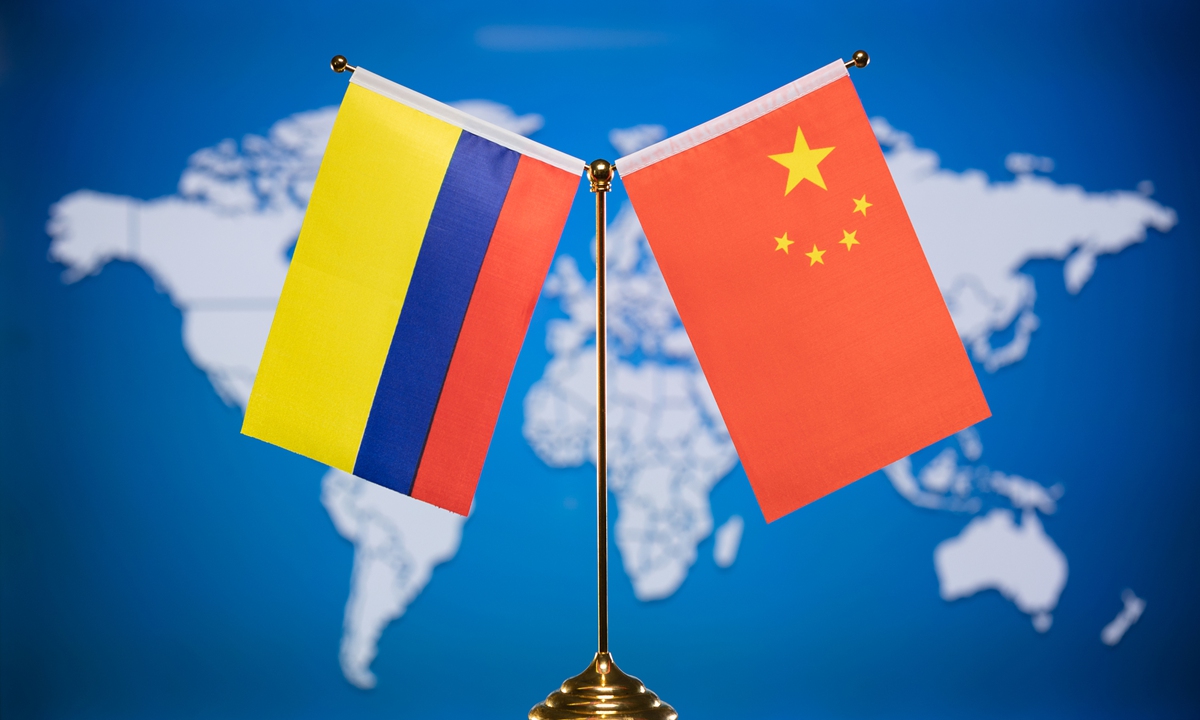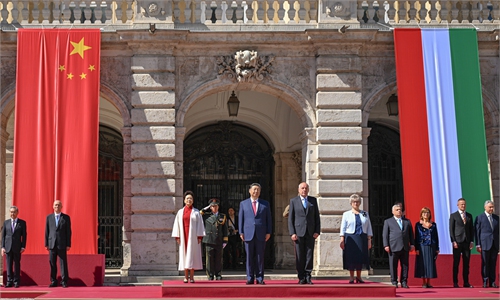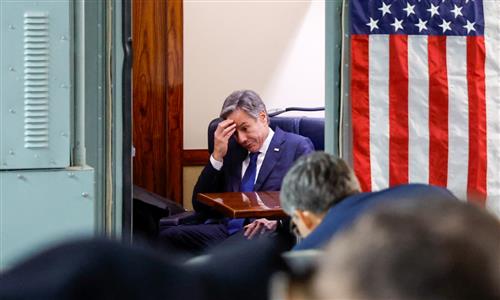
China Colombia Photo:CFP
Colombian Minister of Foreign Affairs Luis Gilberto Murillo started a four-day visit to China from Wednesday. Analysts said that the visit continues the trend of high-level exchanges between China and Latin American countries, strengthening collaboration and providing new momentum for development in the Global South. They also noted that the multilateral mechanism advocated by China, such as BRICS, is increasingly appealing to Latin American countries.
The visit is at the invitation of Member of the Political Bureau of the Communist Party of China Central Committee and Foreign Minister Wang Yi.
During Murillo's stay in China, discussions will likely focus on economic, trade, and financial cooperation between China and Colombia, particularly in light of current global circumstances, Wang Youming, director of the Institute of Developing Countries at the China Institute of International Studies in Beijing, told the Global Times on Wednesday.
Both countries may also work to strengthen cooperation in traditional sectors, such as in minerals and agricultural trade, to consolidate existing economic ties. Colombia has shown strong interest in emerging fields like the digital and green economies and as it is undergoing an industrial transformation, it is seeking to leverage China's expertise in electric vehicles, solar energy and green technologies to enhance collaboration in these areas.
According to Colombian media outlet Colombia One, Murillo is expected to discuss strengthening bilateral ties between the two countries, particularly in trade and investment.
Colombia's participation in China-proposed Belt and Road Initiative (BRI) could also be on the agenda during Murillo's visit, Wang Youming said.
During a visit to China in October 2023, President of Colombia Gustavo Petro said Colombia attaches great importance to the BRI and that it is ready to synergize its geographical advantages and its development strategies with the BRI.
Analysts said that Latin American countries now see balancing among global powers benefit them the most, and they are unwilling to choose sides, since they do not wish to miss out on opportunities presented by China's development. Over the past decade, the BRI has delivered tangible benefits, such as job creation and economic growth, to participating countries, in sharp contrast to the delayed implementation of the US' Americas Partnership for Economic Prosperity.
According to the analysts, despite the US still exerts significant influence in some major Latin American countries, the substantial benefits brought by the BRI have prompted countries like Brazil to respond more favorably and show increasing interest in joining. As a major South American country, Colombia has taken note of Brazil's potential participation in the BRI and is also adopting a more open stance toward the initiative.
Colombia has shown increasing interest in the BRICS group, driven by the multilateral mechanism's appeal to emerging economies, analysts said, noting that this growing interest among developing nations in joining BRICS highlights the rise of the Global South and their push for reforms in global governance.
Discussions between the two sides may also cover Colombia's potential membership in BRICS, according to Colombia One.
This year marks the 10th anniversary of the establishment of the China-CELAC (Community of Latin American and Caribbean States) Forum.
Experts said that Murillo's visit to China strengthens the high-level exchanges between China and regional countries, and more interactions will be seen in the near future to further expand cooperation and bolster Global South collaboration in addressing global challenges.




